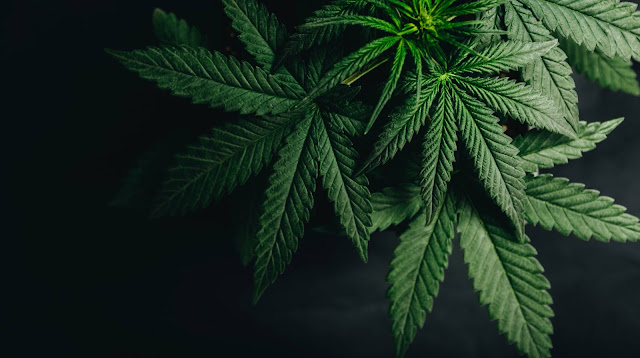- Get link
- X
- Other Apps
Here are some factors that can affect THC detection:
Frequency of use: The more often you use marijuana, the
longer it will stay in your system. Chronic users may test positive for THC for
up to 30 days after last use, while occasional users may test positive for 1-10
days.
Potency of the marijuana: The potency of the marijuana can
also affect how long it can be detected in your system. Higher potency strains
with higher THC content may take longer to clear out of the body as the body
has to process and eliminate more of the drug.
Body fat: THC is fat-soluble, which income it can quandary
to fat molecules and stay in the system longer. This income people with a
higher body fat percentage may metabolize marijuana more slowly and test
positive for THC for longer than people with a lower body fat percentage.
Metabolism: Individual metabolism can also affect how long
marijuana is detectable in your system. Some people may metabolize marijuana
more quickly than others, meaning the drug will be cleared from their system
more rapidly.
Type of drug test: The type of drug test used can also
affect how long THC can be detected. Urine tests are the most shared type of
drug test, and they can detect THC for up to 30 days after last use. However,
hair tests can detect THC for up to 90 days after last use, and blood tests can
detect THC for up to 24 hours after last use.
Other factors: Other factors that can affect THC detection
include age, gender, and genetics. However, these factors are less well-studied
than the factors listed above.
It is important to note that these are just general
guidelines, and the actual time it takes for THC to clear your system will vary
depending on individual factors. If you are concerned about a drug test, it is
best to speak with your doctor or a drug testing professional.
What can cause you to fail for THC?
There are a few things that can cause you to bomb a drug
test for THC, even if you have not used marijuana recently. These include:
Active use of marijuana: As mentioned above, the more often
you use marijuana, the longer it will stay in your system. If you have used
marijuana in the past few days or weeks, it is likely that you will test
positive for THC.
Passive inhalation of marijuana smoke: If you are around
people who are smoking marijuana, you may inhale some of the smoke secondhand.
This can cause you to test positive for THC, even if you did not actually smoke
the marijuana yourself.
Certain medications: Some medications, such as those used to
treat nausea and vomiting, can cause false-positive results on drug tests for
THC. If you are taking any medications, it is important to check with your
doctor to see if they could cause you to fail a drug test.
Certain foods: Certain foods, such as those that contain
hemp seed oil, can also cause false-positive results on drug tests for THC.
If you are worried about deteriorating a drug test, it is
important to speak with your doctor or a drug testing professional. They can
help you understand the factors that can affect THC detection and how to
prepare for a drug test.
Here are some additional things to keep in mind:
The cutoff level for THC detection varies depending on the
type of drug test used. Urine tests typically have a lower cutoff level than
blood tests, meaning that you are more likely to fail a urine test than a blood
test.
If you fail a drug test, you whitethorn be able to request a
retest. However, it is important to note that the retest may also be positive.
If you fail a drug test, you may face punitive action from
your employer or school. The consequences of deteriorating a drug test will
vary depending on the specific situation.
What receptors are affected by THC?
THC, the main psychoactive compound in cannabis, interrelates
with two types of cannabinoid receptors in the body: CB1 and CB2.
CB1 receptors are found chiefly in the brain and central
nervous system. They are responsible for the psychoactive effects of THC, such
as euphoria, relaxation, and altered perception.
CB2 receptors are found primarily in the immune system and
peripheral tissues. They are responsible for the non-psychoactive effects of
THC, such as pain relief and inflammation reduction.
THC can bind to both CB1 and CB2 receptors, but it has a
much higher affinity for CB1 receptors. This means that THC's psychoactive
effects are primarily mediated by CB1 receptors.
The effects of THC on CB1 receptors are mediated by a series
of biochemical pathways that ultimately lead to the release of
neurotransmitters such as dopamine and serotonin. These neurotransmitters are
responsible for the wide range of effects that THC has on the body and mind.
The effects of THC on CB2 receptors are not as
well-understood, but they are thought to be involved in the regulation of
inflammation and pain.
Overall, THC's effects on the body are mediated by its
interaction with cannabinoid receptors. The specific effects of THC will depend
on the dose, the route of administration, and the individual's body chemistry.
- Get link
- X
- Other Apps
